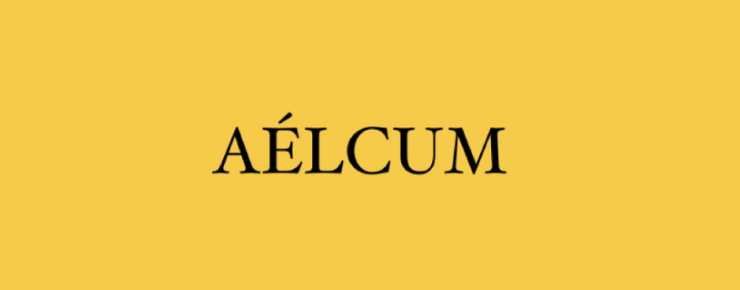Committee
Parham Aledavood is a PhD student in literature and digital humanities at the University of Montreal. He holds a master’s degree in linguistics and literary studies in English from Vrije Universiteit Brussel in Belgium. In addition to CRIHN, he is affiliated with The Research Center for Planetary Literary and Cultural Studies (CELCP). His research interests include migration literature, memory and trauma, computational narrative studies, and postcolonial digital humanities.
Yann Audin is a PhD student in Literature and Digital Humanities at the University of Montreal. He holds a master's degree in Physics from Bishop's University and a master's degree in Comparative Literature from the University of Montreal. He is affiliated with the Canadian Society for the Digital Humanities, the Canadian Research Chair on Digital Textualities, the Centre de recherche interuniversitaires sur les humanités numériques, and the Association de littérature comparée de l'Université de Montréal. His research interests revolve around digital hermeneutics, narrative studies, and computational semiotics. He also contributed with the théâtre PÀP on the analysis of their creative process.
Giulia Ferretti
Giulia Ferretti is a PhD candidate in literature at the University of Montreal, with a specialization in digital humanities, and holds a Master's degree in philosophy from the University of Macerata (Italy). Under the supervision of Marcello Vitali Rosati, her research project focuses on the philosophy of digital protocols and their role in the production and circulation of knowledge. More generally, she is interested in the approach proposed by the Critical Code Studies, which applies critical hermeneutics to the interpretation of computer code. She is affiliated with the Canada Research Chair on Digital Textualities and the Centre de recherche interuniversitaire sur les humanités numériques.
Yanet Hernández is a Ph.D. candidate in Literature and Digital Humanities, jointly supervised by the University of Montreal and the University of Haute-Alsace. Holder of a bachelor's degree in Foreign Languages and a master's degree in Rare Books and Digital Humanities, she is working on a digital critical edition of John Calvin's French correspondence. Her interests range from the vulgarization of ancient documents using digital technologies to the workings of editorial pipelines. She is a member of the EVEille team as well as of the Organizing Committee of the EVEille Study Days 2023.
Loïc Laridant is a student following a Master's degree in Information and Communication Sciences and Technologies (with a specialization in digital information management) at UCLouvain in Belgium. Under the supervision of Mr. Michael E. Sinatra, he is currently doing a research stay at the CRIHN working on semantic tagging and on the organisation of the CÉHNUM conference. As part of his university dissertation in Belgium, he is particularly interested in the evolution of the #MeToo social dynamic on Twitter, from 2017 to today.
Anastasiia Radchuk is a PhD candidate in literature (option Digital Humanities) at the Univ. of Montreal. She holds an Erasmus Mundus Joint Master Degrees in European Literary Cultures from Univ. of Strasbourg in France, Univ. of Bologna in Italie and Univ. of Thessaloniki in Greece. Her research interests include mathematical theories of communication and algorithms in digital space. She is affiliated with the Canada Research Chair on Digital Textualities and the Centre de recherche interuniversitaire sur les humanités numériques.
Mathilde Verstraete is a PhD candidate in literature (option Digital Humanities) at the University of Montreal. After obtaining a Master's degree in Ancient Languages and Literatures (Classics) at the Catholic University of Louvain (Belgium), she joined the Canada Researche Chaire on Digital Textualities and is now the coordinator of the collaborative and digital edition of the Greek Anthology project. Under the supervision of Marcello Vitali Rosati and Elsa Bouchard, she is conducting her research on the potentialities of reception of the Greek Anthology manuscript.


